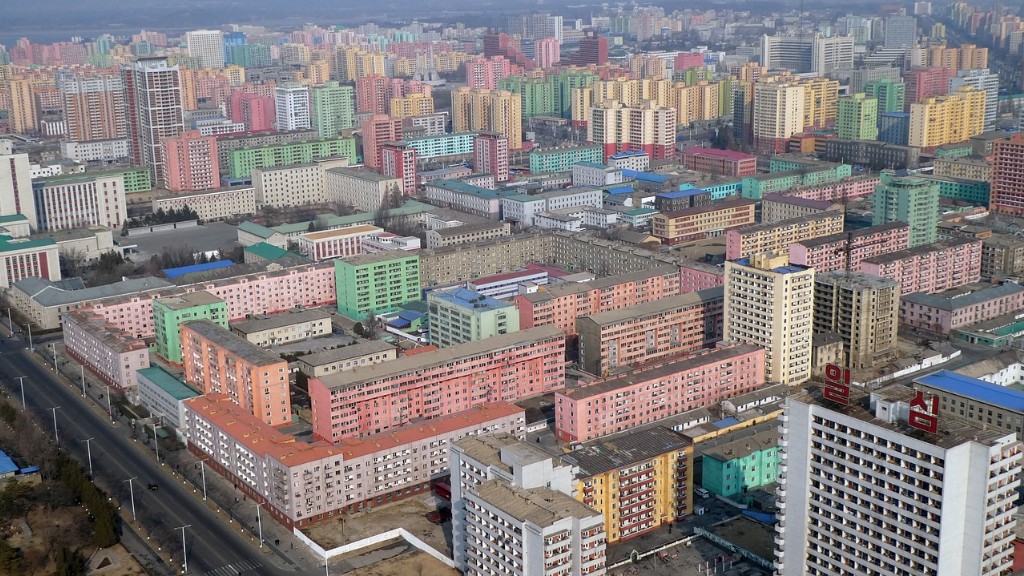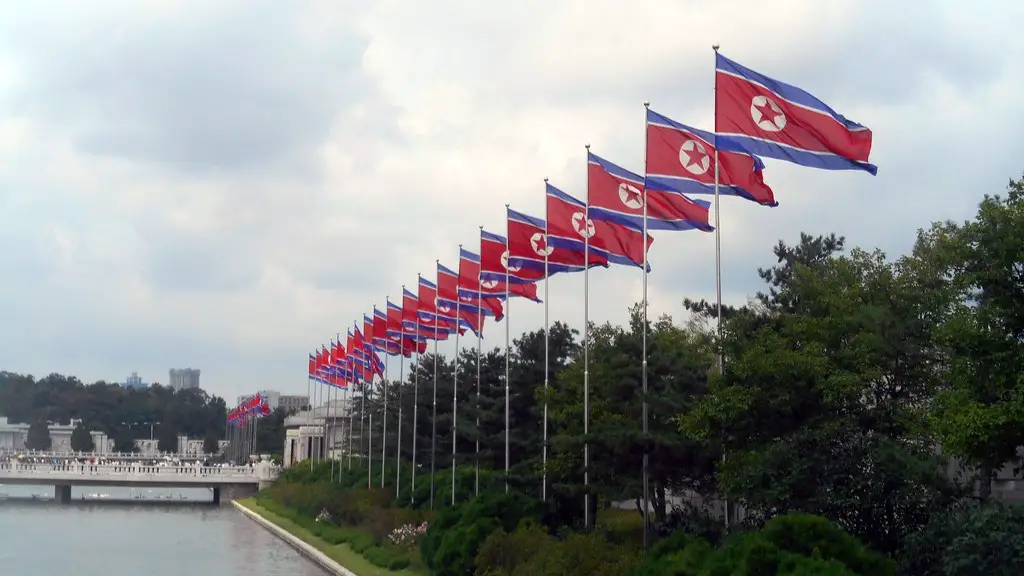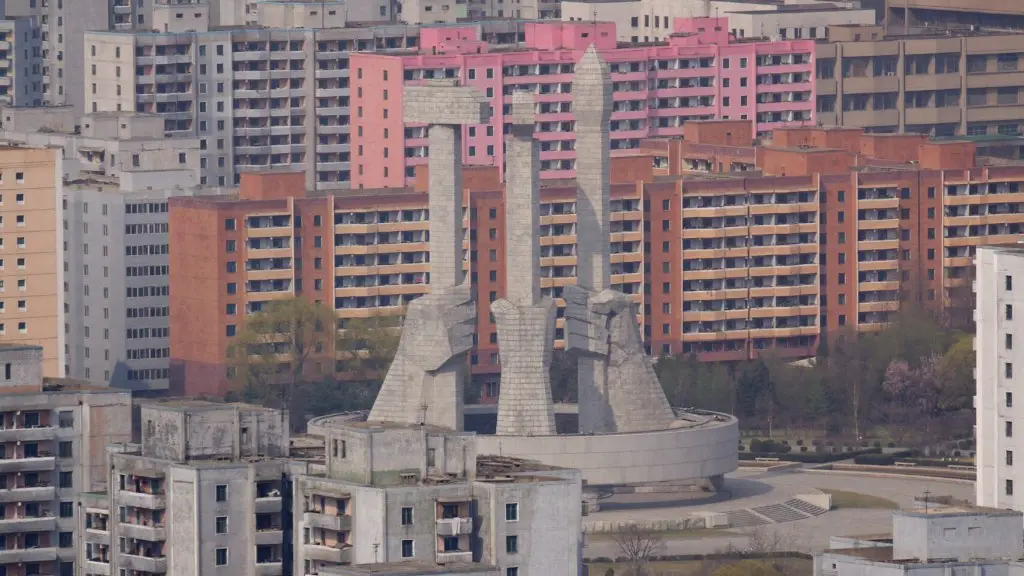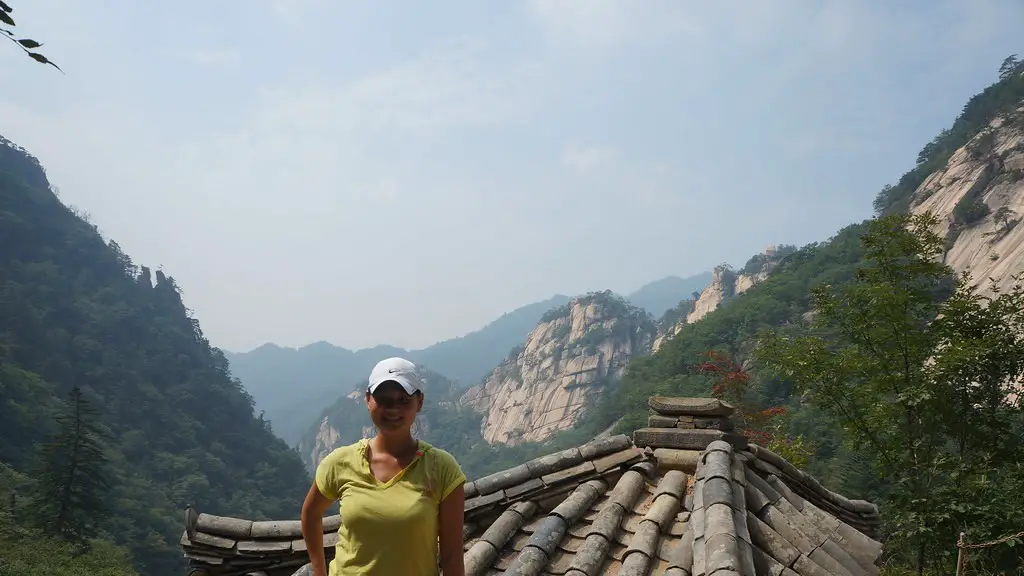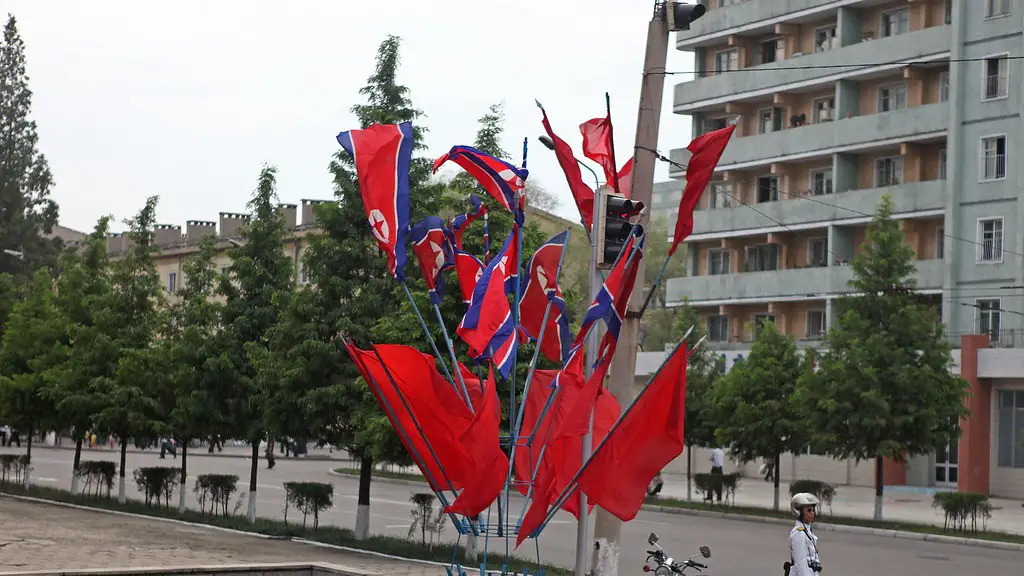North Korea is an enigmatic country that stands alone in the world, cut off from much of the outside world. It is a totalitarian dictatorship with a single ruling party. It is one of the most isolated and secretive nations, yet curious about its rulers and their power. This article will look at who rules in North Korea, providing background information and relevant perspectives from experts. We will also explore some of the other aspects of North Korean rule, and look at the situation of the people living in North Korea.
Kim Jong-Un is North Korea’s supreme leader. He has absolute power and is the chairman of the Workers’ Party of Korea, the country’s only political party. He is also the commander-in-chief of the Korean People’s Army, the country’s armed forces. According to the North Korean constitution, he is the “supreme leader of the Democratic People’s Republic of Korea”. Kim Jong-Un’s father, Kim Jong-Il, and his grandfather Kim Il Sung, both held absolute power in the country and were collectively referred to as the “Great Leader”. After the death of Kim Jong-Il in 2011, Kim Jong-Un assumed the title of “Supreme Leader”. He is the third generation of the Kim dynasty, a hereditary dictatorship.
The power of the regime is enforced through pervasive surveillance and brutal oppression. The government is one of the most repressive countries in the world, controlling every aspect of its citizens’ lives, including freedom of speech and movement, the media, and access to the internet. It is estimated that up to 200,000 people are held in the country’s political prisons. Human rights groups report a long list of abuses, including extrajudicial killings, torture, labor camps and forced starvation. Kim Jong-Un has also been accused of having assassinated several of his perceived enemies.
The government is headed by the Politburo, which is the highest decision-making body. It is composed of 23 members, and is chaired by Kim Jong-Un. Below the Politburo is the Central Committee, which is the main coordinating body of the Workers’ Party, and is composed of the country’s most senior officials. Below the Central Committee is the National Defense Commission, which is responsible for overseeing the country’s defense affairs. Below all of these is the Cabinet, which is responsible for running day-to-day affairs, such as foreign policy and economics.
The power of the regime is also secured through a powerful cult of personality surrounding the Kim family, and through extreme economic sanctions, which have crippled the country. North Korea continues to be one of the poorest countries in the world. The regime has instituted an “anti-Japanese colonial” policy, and has eschewed economic reform in favour of its nuclear ambitions. The economy is heavily centralized and the state owns all land and resources, resulting in extreme economic hardship for the country’s citizens.
The country is still largely isolated from the rest of the world, and much of the information about it comes from defectors and refugees. There is a sense of fear and paranoia among the people living in North Korea, as the regime monitors their activities, punishes dissent harshly, and operates largely outside of international law.
The role of the military
The military plays a powerful role in North Korea, and is considered one of the pillars of the regime. It is estimated to have 1.2 million active personnel, with a budget of 8.2% of its GDP. The North Korean military operates according to a militarized economy, and has an impressive arsenal of nuclear weapons, intercontinental ballistic missiles and other weapons of mass destruction. The military is highly respected by the North Korean regime, and serves as a key instrument of its foreign policy.
The military also plays a role in domestic politics and has a presence in all aspects of life in North Korea. The military is seen as a symbol of power and strength, and is held in high esteem by the population. It is also considered to be an effective tool for internal repression, with reports of its forces being used to quash any form of dissent.
The military is also responsible for enforcing the country’s border security, which is enforced by an elaborate system of fences, guard posts, and restrictions. Despite these restrictions, North Korea is estimated to have 2.2 million refugees, most of whom have fled to neighbouring countries.
The role of the Kim family
The power of the regime is also maintained through an elaborate system of censorship and control. The regime is often referred to as a “glorious family dictatorship” because of the extent to which the Kim family and its allies are embedded in the country’s political and economic systems. Kim Jong-Un is seen as the ultimate leader, and his family is venerated as heroic and unstoppable. They are the face of the regime and the country’s citizens are taught to revere and obey them.
The state-run media is tightly controlled, and is used as a tool to propagate the regime’s message. The media portrays the Kim family as benevolent and wise, and the North Korean people as loyal and hardworking. The media also reinforces the idea that the regime is the only power capable of protecting the Korean people.
The Kim family also uses its influence to control the country’s economic policy. The government’s centralized economic system is designed to maintain the power of the regime, and to ensure economic prosperity through heavy state subsidies and taxes. The regime also has a tight grip on all foreign investment, and its economic policies have resulted in extreme economic inequality.
The role of foreign powers
North Korea’s isolationist policies have resulted in a lack of engagement with foreign powers. The regime is hostile towards the international community, and has a long history of violations of UN resolutions and international law. North Korea has been subject to numerous sanctions and other measures in an effort to compel it to end its nuclear weapons and ballistic missile programs.
The US is North Korea’s primary diplomatic interlocutor, and the two countries have engaged in numerous rounds of talks in an effort to resolve the nuclear issue. The US has traditionally wielded its economic and diplomatic power to pressure North Korea to denuclearize and cease its provocative activities, with mixed results. China, North Korea’s closest ally, has steadied its diplomatic ties with the US in recent years.
The Korean Peninsula remains a source of geopolitical tension, and the situation is further complicated by the presence of US troops in South Korea, and the presence of nuclear weapons in North Korea. China and Russia both have a vested interest in maintaining stability on the Korean Peninsula, while South Korea is firmly committed to its defense alliance with the US.
The impact on the people of North Korea
At the end of the day, the people of North Korea bear the brunt of the regime’s oppressive rule and its provocative policies. The country is extremely poor, and the people face extreme food insecurity, malnutrition, and lack of access to basic health care and education. The regime’s repression and its tight control of the economy has resulted in extreme poverty and deprivation.
Despite the oppressive nature of the regime, there has been a significant amount of civil society activity in recent years. There have been efforts by activists, dissidents, and NGOs to bring about a more open society, with some limited success. Nevertheless, the vast majority of North Koreans are still subjected to an entrenched system of oppression and human rights abuses.
Non-governmental organizations
The work of non-governmental organizations (NGOs) operating in North Korea has been essential in raising awareness about the situation in the country and advocating for change. Organizations such as Human Rights Watch and Amnesty International have played a crucial role in documenting and highlighting the human rights abuses in the country. They have also provided support to people in need, such as providing financial aid and medical assistance. These organizations have managed to have some success, but their efforts are still severely hindered by the repressive nature of the regime.
The European Union has also provided assistance to North Korea, in particular through development assistance and humanitarian aid. This assistance has been largely conditional on progress on nuclear issues and human rights. Nonetheless, the EU has been committed to engaging with the North Korean government and providing much-needed assistance to the people of the country.
The outlook for North Korea
The future of North Korea remains uncertain. The regime is still highly repressive, and many of the country’s citizens still live in extreme conditions of deprivation. The international community continues to pressure the regime to abandon its nuclear weapons and missile development, while pushing for greater reform. Only time will tell if the North Korean people will eventually be free from the oppressive rule of the Kim family.
In the meantime, the world will continue to observe North Korea as one of the most closed and secretive countries in the world. It is clear that the isolationist policies of the regime have only served to deepen the suffering of the North Korean people.

